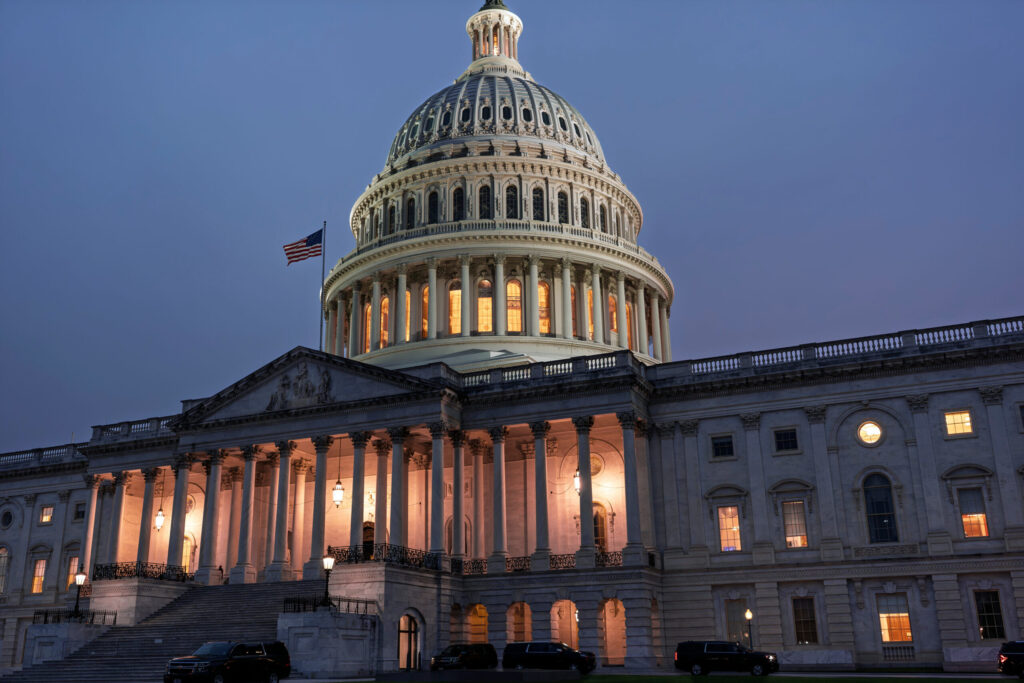Keeping children safe online faces constitutional problems in courts
After a highly publicized congressional hearing featuring the CEOs of major social media companies, a federal bill aiming to keep children safer online may be moving toward becoming law. This effort parallels state attempts to impose restrictions and conditions for young people online. Those laws are already facing constitutional problems in the courts.
The Kids Online Safety Act, or KOSA, first introduced in 2022, now has support from 60 senators, suggesting it has a path to passing that chamber. The bill would impose a “duty of care” on design features that might harm users under 16 on social media platforms. Critics contend this will trigger age verification for all users, sacrificing the privacy of millions of users. However, supporters point to an urgent need to address social media’s role in the perceived youth mental health crisis.
“It is undergirded by the commonsensical objective of requiring social media companies to build their platforms to be age-appropriate at the level of design (not speech) so that they do not take advantage of adolescent immaturity through technical devices (like infinite scroll), which try to bend their impressionable wills toward things that they are simply ill-prepared to handle,” Michael Toscano, executive director of the Institute for Family Studies, said in an interview.
The bill faces a more uncertain future in the House, where there are competing online child safety proposals. President Joe Biden indicated support for an earlier version of the federal KOSA bill in July 2023. If KOSA became law, it would likely face First Amendment challenges in court.
With parents concerned and prominent voices linking social media to declines in teenage mental health, many states aren’t waiting for Congress to act. At least 15 states have introduced or passed safety efforts.
Similar to KOSA’s approach, a 2022 California law places the onus of responsibility for child welfare squarely on companies. California’s law mandates the highest privacy be the default setting, incentivizes age verification to prevent companies from running afoul of the law, requires impact assessments before making any new feature available, and generally shifts judgments about language or data practices’ potential to harm children to businesses and services online. To avoid running afoul of the law, critics contend that online services will remove a great deal of lawful speech.
Because of those speech concerns, when the California law was challenged in federal district court, the judge granted a preliminary injunction against it, writing that the plaintiff was “likely to succeed on at least one of its First Amendment theories.”
Last year, Arkansas became the second state to pass a law restricting children’s use of social media platforms and takes a different approach. The law mandates that children get their guardian’s permission before signing up for a new platform and requires social media platforms to use a third-party vendor to verify the age of new users. A preliminary injunction was soon granted against this bill, with the court citing the numerous exemptions rendering the law ineffective and its obliteration of anonymity online with its age verification requirement. The court found that the law would chill the constitutionally protected flow of free speech.
A similar law in Ohio was halted in February of this year. When trade digital trade group NetChoice sued to stop the law from going into effect for violating the First and 14th amendments, federal Judge Algenon Marbley agreed. In his ruling, he found, “Foreclosing minors under 16 from accessing all content on websites that the Act purports to cover, absent affirmative parental consent, is a breathtakingly blunt instrument for reducing social media’s harm to children.”
Also signed into law last year, the Utah Social Media Regulation Act similarly requires companies to verify users’ age and obtain parental consent for minors. But it breaks new ground by restricting the hours at which minors can access their accounts. This law was also challenged in court, resulting in the state delaying its implementation.
CLICK HERE TO READ MORE FROM THE WASHINGTON EXAMINER
Despite the pattern of laws being found likely unconstitutional and thin data proving casual harm by social media, other states have either passed or introduced similar legislation. That includes Connecticut, Iowa, Louisiana, Maryland, Minnesota, Nevada, New Jersey, New Mexico, New York, Oregon, Texas, and Wisconsin. Jess Miers, senior counsel for Chamber of Progress, a progressive tech industry group, said in an interview, “These bills, by mandating age verification and parental consent, not only infringe on the First Amendment rights of adults and minors but also pose significant risks to online privacy and security.”
She continued, “These bills will inevitably be used to exclude vulnerable groups from vital online support, communities, and resources while potentially exposing all users to data breaches and misuse of personally identifying information by third parties.”










